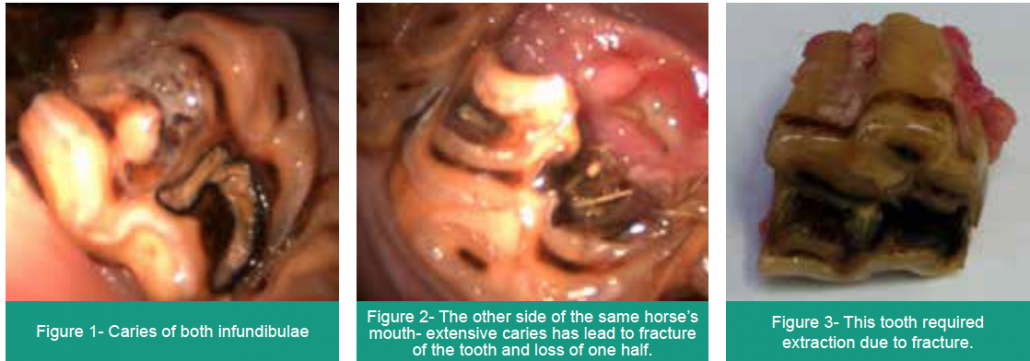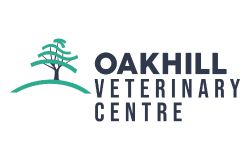Similar to humans, horses’ teeth suffer from decay, referred to as ‘caries’.
Horses’ upper cheek teeth have infundibulae, cup-shaped invaginations in their grinding surface that are normally filled with a hard material called cementum. Sometimes these infundibulae are incompletely filled during development, leaving a cavity for food to settle in and decay. Over time the decay weakens the structure of the tooth, predisposing it to fracture and, if the decay advances beyond the margins of the infundibulum and into the sensitive pulp system, an apical (root) infection may arise. Both of these situations require extraction of the tooth.

How can we prevent this?
Infundibular caries cannot be detected by feel, therefore is it imperative that every horse’s mouth is visually assessed using a headtorch during routine dental examinations to detect these before advanced disease develops.
It is possible to perform cleaning and filling of the cavity with filling material. This is termed an ‘infundibular restoration’. We now have the equipment to perform this at our clinic.
To discuss any of our Advanced Dentistry services, please call Sam Baker at the surgery: 01772 861300
